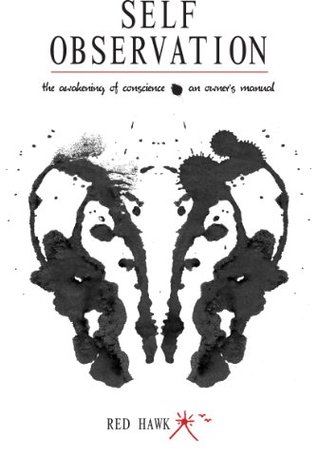More on this book
Kindle Notes & Highlights
by
Red Hawk
Read between
July 28 - December 22, 2024
Knowing others is wisdom; Knowing the self is enlightenment. (Lao Tsu. Tao Te Ching, Sutra 33)
We are herd animals. This is a very powerful force in the body, impossible to ignore; it causes me to lose the thread of who I am = attention* (consciousness*) and identify myself as the body, so powerful is the need to identify with, and be included as, part of the herd. Herd animals do not think for themselves, the herd thinks for them and acts for them. Whatever direction the herd goes in, we go.
Everything must be verified by personal experience, otherwise it is merely another form of slavery, one more chain to bind me in my unconscious and mechanical slavery.
Good teaching would help me to understand not that I have a soul, but that I am a soul, and I exist for a brief moment in a human biological instrument,* a human body.
The soul is the only thing that exists before and after our existence, hence when I say “I am” the soul is what makes most sense. What I wonder, however, is if the Self is indeed the soul on itself or the soul connected to this existence, although I lean more towards that it’s the soul itself.
Of all the sources of help available to the soul in its development, none is more crucial, more helpful, more revealing, or more direct and personal than self observation.
The learning which arises from self observation happens at exactly the pace with which I am able and willing to observe, no more, and no faster.
the act of self observation is the only change a human being needs to make in her behavior; everything else, all fundamental changes in behavior, emotion, and thinking arise as a by-product of this practice.
The author made an interesting connection with the “cat in a box” experiment in which the sole fact of observing something already changes that thing.
Our entire educational system is designed to educate only the intellectual center. Emotions and feelings, which are not the same, have no place in our education. Nor does instinct.
The practice of self observation includes the practice of “finding yourself,” locating yourself in time and space, in the body but not as the body, and then managing the body: this is known as self remembering.
This was something I learned years ago, although I didn’t know how that was called. It wasn’t simple to learn, but it was life changing for me.
It also judges every one of my actions in order to create the illusion of separation between myself and the action: I speak cruel words, then I judge those words as wrong and in so doing, I create the illusion that I am separate from the action being judged. The moment there is blame, there is separation from what is blamed. In this way, I prevent myself from seeing and feeling my behavior and taking full responsibility for it, owning my behavior.
Judgment keeps me blind to myself. And I believe in this judgment process totally, either by accepting or rejecting what it tells me. Either way, I am “identified” (= “I am that”) with the process of judgment. It rules, I obey without question.
The law of maintenance: What goes unfed weakens; what gets fed grows stronger. Either the intellectual-emotional-complex feeds on the attention and grows stronger, while the attention grows weaker,
The author talks about being carried away by thoughts, and that observation them without judgment weakens its power
The thinker (memory) likes to learn what it likes. It does not want to learn what it does not like. That is because the thinker, which is memory, is programmed to be binary.
The ego depends upon me not being OK, upon having problems, upon being broken and then fixing the problem, repairing the damage. The ego = problem-and-fixing-the-problem. If there were no problems, thus nothing to fix, there would be no ego. Simple.
We explore the reality and unpredictability of insecurity and pain, we try not to push it away. If it takes years—if it takes lifetimes—we let it be as it is. At our own pace, without speed or aggression. We move down and down. With us move millions of others, our companions in awakening from fear. (Pema Chodron)


